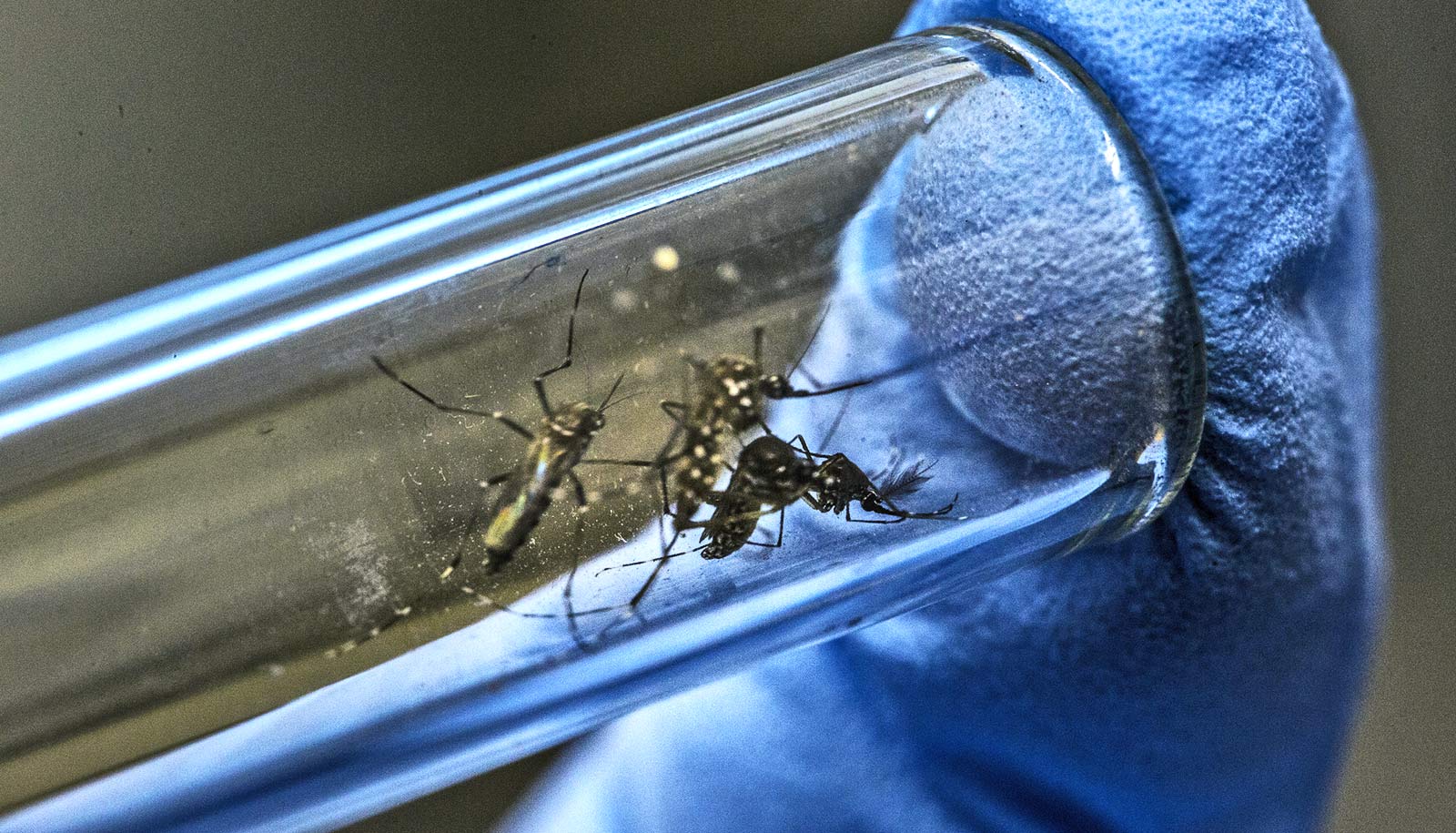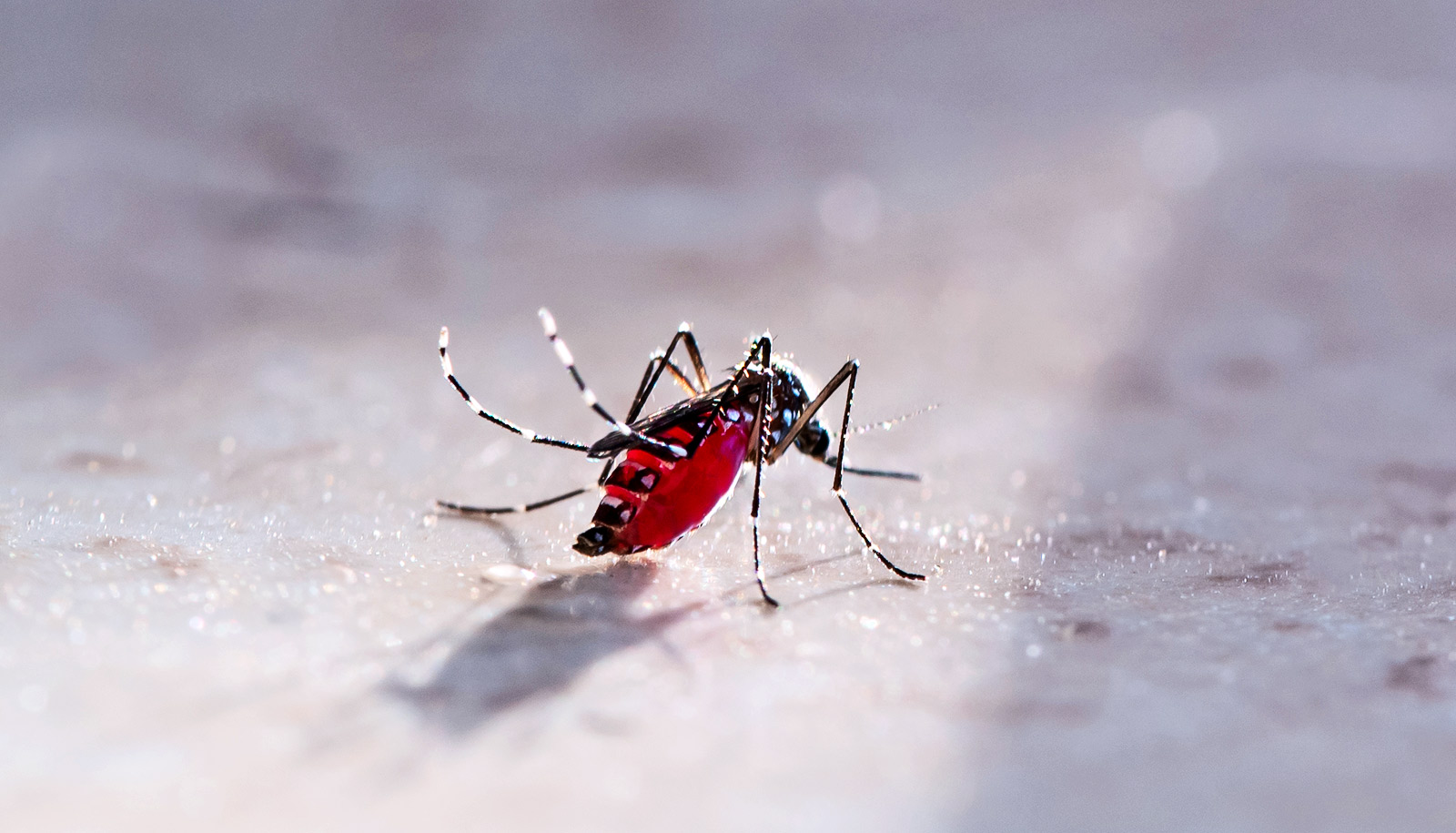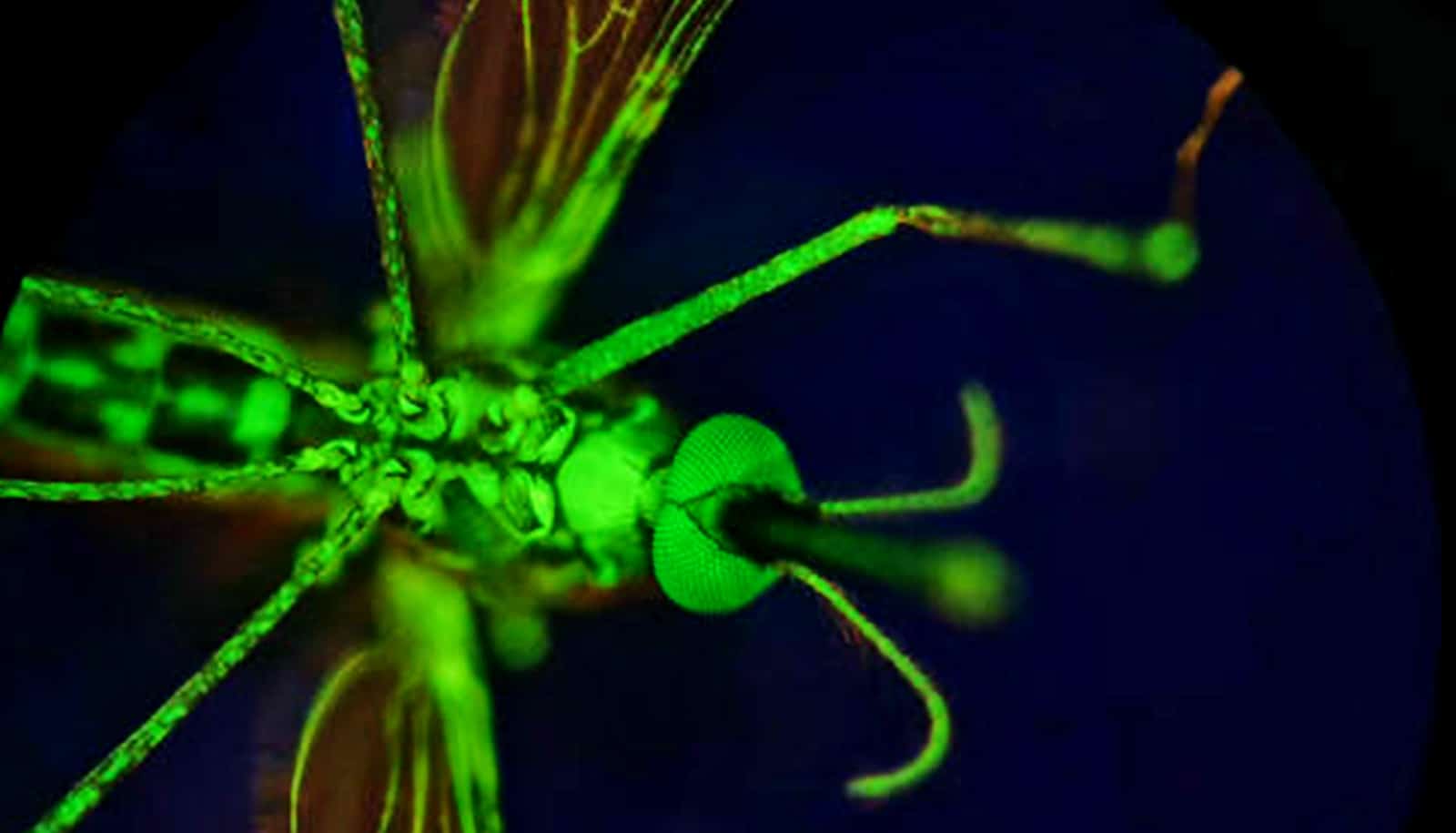Researchers have discovered a link between genetic molecules in mosquitos and dengue fever.
The researchers focused their efforts on a single species of mosquito, Aedes aegypti, a key player in the spread of such diseases in animals and humans around the world. The results could lead to breakthroughs in fighting destructive tropical diseases like dengue fever, Zika virus, and yellow fever, a new study shows.
An estimated 2.5 billion people live in places where it’s possible to contract dengue fever, according to the Centers for Disease Control and Prevention.
While small outbreaks have occurred in the continental United States, dengue fever has been particularly severe in Puerto Rico, where a 2007 epidemic affected approximately 10,000 people.
“Given the widespread global distribution of the Aedes aegypti mosquito, we estimate over 40 percent of the world’s population is at risk from dengue,” says Susanta K. Behura, assistant research professor in bioinformatics and computational biology at the University of Missouri.
“Now that the study has been completed, the research could be used to precisely modify the genetic material of mosquitoes, preventing them from spreading disease to humans,” Behura says.
Recent research has shown that fragments of transfer RNA (tRFs), small sections of RNA that can regulate gene expression, play a role in development of disease. The finding prompted researchers to collect samples from mosquitoes around the world, which then underwent molecular analysis.
In analyzing tRF response to a variety of conditions and stimuli—including sex, developmental stage, and exposure to the dengue virus—researchers found that a specific tRF was expressed differently when exposed to each of these conditions.
Genetically modified mosquito doesn’t catch dengue
In particular, the sex-biased expression was important, as only female mosquitoes feed on blood and spread diseases to humans. This particular tRF is a promising candidate for further study, raising the possibility of a targeted approach to halting the spread of dengue fever.
“We do not have vaccines for all the different viral diseases caused by this mosquito,” Behura says. “Currently, the best way to fight these mosquitoes is to control them, and the rational way to control human infections is to make them incapable of spreading the disease.”
The study is published in PLOS Neglected Tropical Diseases. The University of Notre Dame, the Fogarty International Center, and the National Institute of Allergy and Infectious Diseases at the National Institutes of Health funded the work.
Source: University of Missouri



